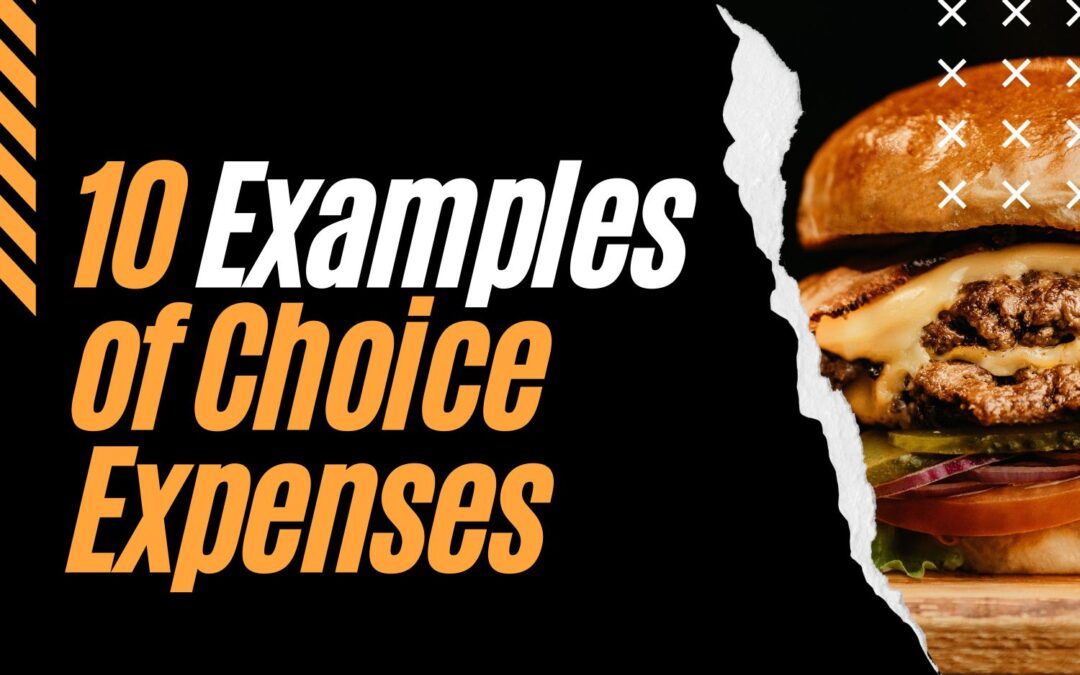Choice expenses” typically refer to discretionary spending items in a budget. These are expenses that are not essential for basic living but are optional and based on personal preferences and lifestyle choices. Choice expenses can vary widely from one person to another, as they depend on individual priorities and interests. Some common examples of choice expenses include:
- Entertainment: This includes expenses related to movies, concerts, sports events, dining out, and other recreational activities.
- Travel: Expenses related to vacations, weekend getaways, or other travel experiences.
- Hobbies: Spending on hobbies such as gaming, photography, crafting, sports, or any other leisure activities.
- Eating Out: Money spent on dining at restaurants or ordering takeout and food delivery.
- Subscription Services: Payments for streaming services, magazines, online courses, gym memberships, or other subscription-based services.
- Shopping: Purchases of clothing, accessories, gadgets, or other personal items beyond basic necessities.
- Gifts and Donations: Money spent on gifts for family and friends, as well as charitable donations.
- Home Décor and Improvement: Spending on home furnishings, decorations, renovations, or remodeling projects.
- Luxury Items: Purchases of luxury goods such as designer clothing, high-end electronics, or expensive jewelry.
- Gaming: Expenses related to video games, gaming consoles, or in-game purchases.
It’s important to note that while choice expenses are not essential for survival, they can significantly contribute to one’s quality of life and happiness. When creating a budget, it’s crucial to balance these discretionary expenses with essential needs like housing, food, healthcare, and debt payments to ensure financial stability and achieve financial goals.

